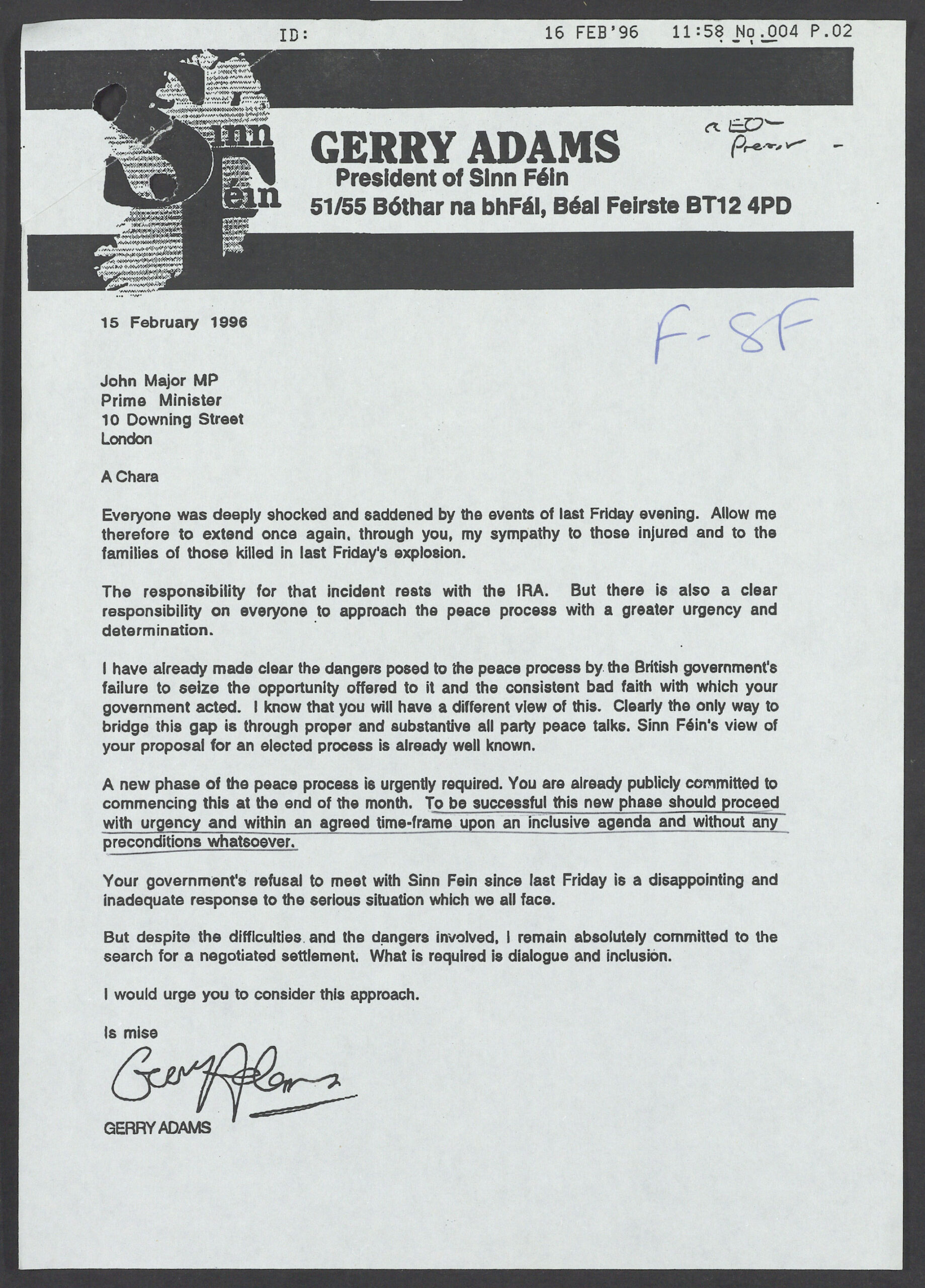
A letter from Gerry Adams, the leader of Sinn Féin, to John Major, the UK Prime Minister. Catalogue reference: CJ4/12375
Transcript
GERRY ADAMS
President of Sinn Féin
51/55 Bóthar na bhFál, Béal Feirste BT12 4PD
15 February 1996
John Major MP
Prime Minister
10 Downing Street
London
A Chara
Everyone was deeply shocked and saddened by the events of last Friday evening. Allow me therefore to extend once again, through you, my sympathy to those injured and to the families of those killed in last Friday’s explosion.
The responsibility for that incident rests with the IRA. But there is also a clear responsibility on everyone to approach the peace process with a greater urgency and determination.
I have already made clear the dangers posed to the peace process by the British government’s failure to seize the opportunity offered to it and the consistent bad faith with which your government acted. I know that you will have a different view of this. Clearly the only way to bridge this gap is through proper and substantive all party peace talks. Sinn Féin’s view of your proposal for an elected process is already well known.
A new phase of the peace process is urgently required. You are already publicly committed to commencing this at the end of the month. To be successful this new phase should proceed with urgency and within an agreed time-frame upon an inclusive agenda and without any preconditions whatsoever.
Your government’s refusal to meet with Sinn Fein since last Friday is a disappointing and inadequate response to the serious situation which we all face.
But despite the difficulties and the danger involved, I remain absolutely committed to the search for a negotiated settlement. What is required is dialogue and inclusion.
I would urge you to consider this approach.
Is mise
GERRY ADAMS
« Return to The road to the Belfast (Good Friday) Agreement (KS3)- What can you suggest happened last Friday?
- Who was responsible?
- What does Adams think about the UK government?
- What does Adams say is now more urgent than ever?
